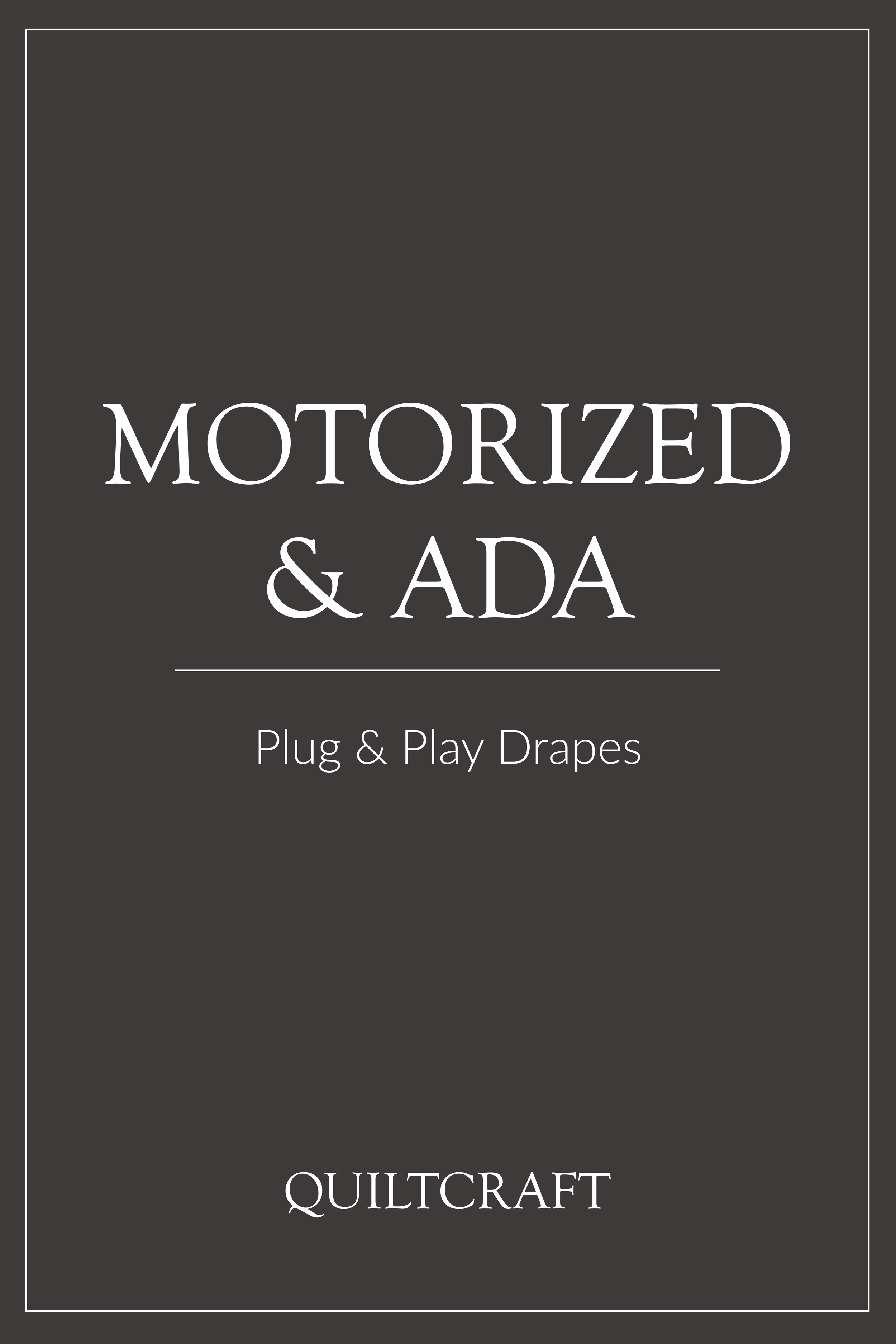How Much Will My Window Treatment Weigh?
Calculating a drape’s weights can be painfully complicated, requiring one to convert a fabric’s weight and yield while accounting for the material width and all the while jumping between metric and imperial conversions. So, we thought this a perfect opportunity for Quiltcraft to try and make the complex simple. To start, we’ve outlined “typical weights” for various types of fabrics commonly used in our industry; and to avoid the need for Excedrin, our approach won’t require you to worry about the width of your particular fabric (54”, 110”, 118” etc.) as we’ve already reduced everything to the square yard.
Chenille
Heavier than typical drapery weight >>> 11.75 OSY or .734 PSY
OSY = ounces per square yard and PSY = pounds per square yard
Sateen
Lighter than typical drapery weight >>> 4.75 OSY or .296 PSY
OSY = ounces per square yard and PSY = pounds per square yard
Woven
Typical drapery weight >>> 8.25 OSY or .515 PSY
OSY = ounces per square yard and PSY = pounds per square yard
Sheer
2.50 OSY or .156 PSY
OSY = ounces per square yard and PSY = pounds per square yard
Coated or lined fabric
Assuming you’ll want to take blackout coated or lined drapery treatments into account, we’ve provided those typical weights below as well.
Heavy Woven Coated 12.25 OSY or .765 PSY
Light Woven Coated 10.00 OSY or .625 PSY
2 Pass Blackout 8.25 OSY or .515 PSY
Math time…
Now that we have our fabric’s weight, we need to do some quick math to determine how many square yards our treatment will utilize. This one’s easy: Rod width times length times fullness divided by 1,296 (inches in a square yard).
A quick example: Imagine the treatment in the above picture is a 12’ wide treatment, 8’ tall at 200% fullness with both a sheer and blackout lined woven overdrapery. How much does it weigh? Let’s find out!
144 (rod width) x 96 (treatment height) x 2 (fullness) / 1,296 (in in a square yard)
21.33 square yards of material for each treatment with this specification
Sheer: 21.33 square yards x .156 pounds per square yard = 3.33 pounds
Woven* with 2Pass Blackout: 21.33 square yards x 1.03* pounds per square yard = 21.97 pounds
* Woven at .515 PSY plus 2 Pass Blackout at .515 PSY
In the above example, we know we’re utilizing 25.30 pounds of fabric; however, we also need to account for the weight of the drapery hardware. And again, to help simplify we’ve outlined the typical weight for each style of track.
Manual Draw | 0.30 pounds per linear foot
Cord Draw | 0.40 pounds per linear foot
Motorized | 0.50 pounds per linear foot
So, if we needed to advise an owner or contractor how much the overall treatment in our above example will weigh, including two manual draw tracks, our answer would be 32.50 total pounds.
Sheer Drapery | 3.33 pounds fabric + 3.60 pounds hardware = 6.93 pounds
OverDrapery | 21.97 pounds fabric + 3.60 pounds hardware = 25.57 pounds
Now, can variables change these assumptions…? Absolutely! If you are utilizing a 2” wooden decorative pole with rings your hardware would weigh up to 1.5 pounds per linear foot, you might utilize a wood cornice weighing 22 pounds per window and we’ve even been asked to manufacture drapes with fabric weighing upwards of 16 ounces per square yard before. So please understand that these values represent typical standards with the intent of outlining a simplified guideline to assist in calculating your window treatment’s weight.
We hope this post was helpful. Don’t hesitate to contact us if you have any questions!
Visit us again for more educational material!
Check Out Related Resources
























